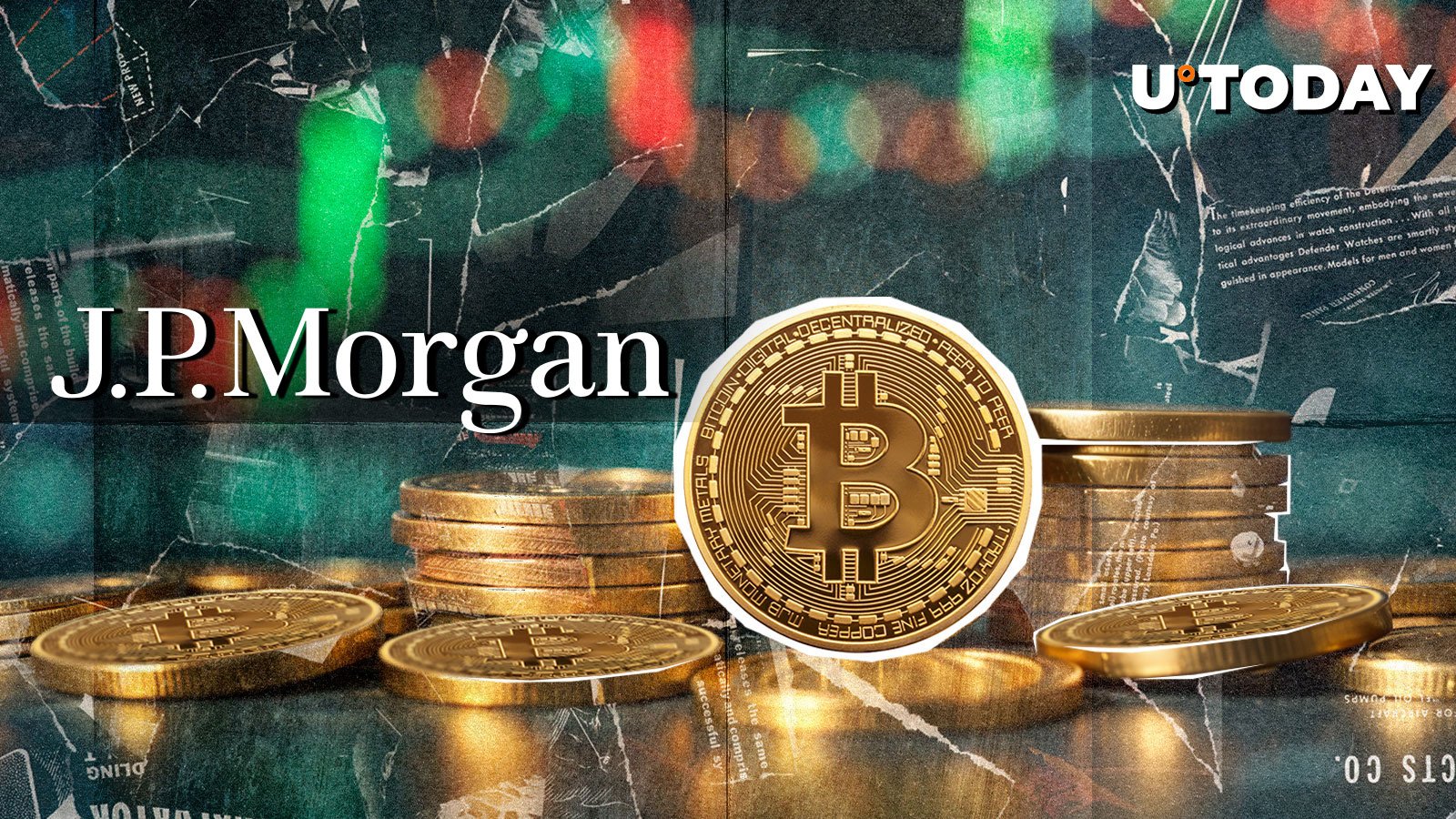The Cracking Narrative of Bitcoin as Digital Gold: JPMorgan’s Perspective
In the ever-evolving world of cryptocurrencies, Bitcoin continues to hold the crown as the largest and most well-known digital asset. For quite some time, it has been touted as “digital gold” due to its finite supply, decentralized nature, and perceived store-of-value properties. However, a recent report from banking titan JPMorgan has shed light on a concerning trend that might be shaking the foundations of this narrative.
The Correlation between Bitcoin and U.S. Equities
According to JPMorgan, there has been a significant increase in the correlation between Bitcoin and U.S. equities, with the correlation coefficient reaching an all-time high of 0.7 in late 2020. This means that the price movements of the two assets have become increasingly intertwined, with Bitcoin’s price now closely mirroring the direction of the stock market.
Implications for Bitcoin as a Safe Haven Asset
The growing correlation between Bitcoin and U.S. equities calls into question Bitcoin’s role as a safe haven asset. Traditionally, investors turn to gold during times of economic or political uncertainty, as it has a historically low correlation with other asset classes. Bitcoin, as a digital alternative to gold, was expected to follow a similar pattern. However, with Bitcoin’s price now closely tracking the stock market, it may no longer offer the diversification benefits that investors seek.
Impact on Individual Investors
- Investors who have relied on Bitcoin as a safe haven asset may need to reconsider their strategy.
- Diversification is key. Consider adding other low-correlated assets to your portfolio to mitigate risk.
- Stay informed about market trends and developments to make informed investment decisions.
Effect on the Global Economy
The implications of Bitcoin’s changing relationship with U.S. equities extend beyond individual investors. The correlation could impact the broader financial system and global economy.
Financial Instability
Increased correlation between Bitcoin and U.S. equities could lead to heightened financial instability. If both assets experience significant price swings, it could result in amplified market volatility and potential market crashes.
Regulatory Scrutiny
As Bitcoin’s correlation with traditional assets grows, regulatory scrutiny is likely to intensify. Governments and regulatory bodies may view Bitcoin as a threat to financial stability and could take measures to limit its use or impose stricter regulations.
Conclusion
JPMorgan’s report on the correlation between Bitcoin and U.S. equities serves as a stark reminder that the digital asset landscape is dynamic and constantly evolving. While Bitcoin’s “digital gold” narrative may be falling apart, it’s essential to remember that the asset still offers unique properties that distinguish it from traditional gold and other asset classes. By staying informed and adapting to market trends, investors can navigate the complex world of cryptocurrencies and make informed decisions that best suit their investment objectives.
As we move forward, it’s crucial to keep a close eye on market developments and the correlation between Bitcoin and U.S. equities. By doing so, we can better understand the implications for individual investors and the global economy and make informed decisions accordingly.





